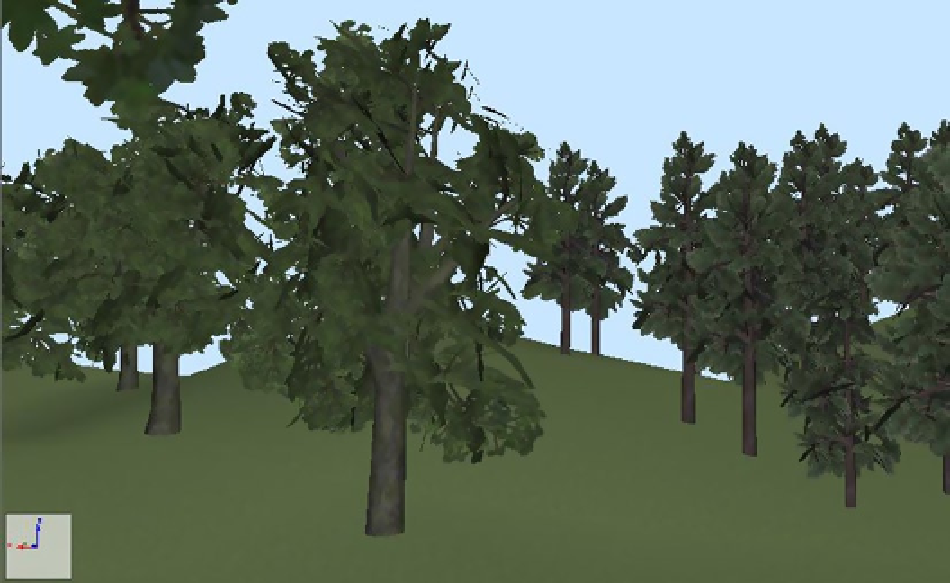Game Development Reference
In-Depth Information
Figure 8-7.
A sample Unity terrain rendering
Miscellaneous Options
Unity offers the option to fix names to valid XML. This option enables the exporter to save the names as is in the
COLLADA document. By default, the names are converted to be valid XML name strings so the exported document
will validate against the COLLADA schema. This restriction of the COLLADA 1.4.1 schema has been lifted in 1.5, but
some applications will not be able to load a COLLADA document when names are not correctly XML-encoded.
The “bake matrix” option is only available if “Do Not Export Animation” has been selected. It allows the option to
“Separate Rotation Translation And Scale” in the COLLADA scene.
The camera export option specifies whether or not to export the cameras. This is useful for tools such as Preview
that enable the end user to have preset views.
The light export option allows you to specify whether to export the lights. Most of the time, it is recommended
not to export the lights as many applications can only handle a very limited number of lights; otherwise, the scene
may display as completely black with too many lights! Thus, it is probably best to rely on the lights of the importing
application, such as Apple Preview.
The lightmaps export option enables you to “Export Lightmaps,” which will copy the images used for
lightmapping into the texture folder. Since this exporter only supports diffuse textures, the lightmaps won't appear in
the importing application unless you write your own shaders (and export the secondary UV set, which contains the
information needed for the lightmapping).
Exporting
The last button is Export, as shown in Figure
8-8
, which is at the very bottom of the Exporter's dialog box
(shown above in Figure
8-4
).

